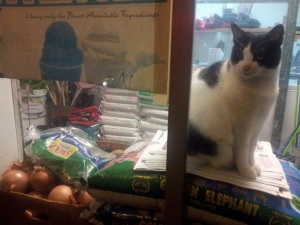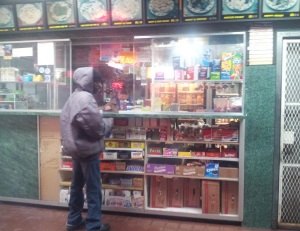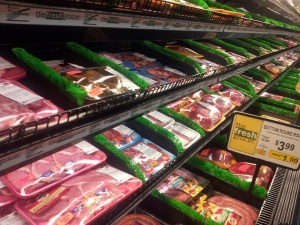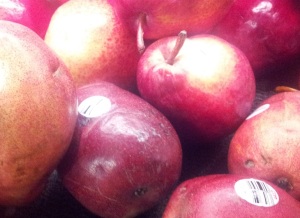For the past few months, La Salle University and local associates have set out to better understand, educate, and provide helpful solutions to the issues with malnutrition in the Germantown area of Northwest Philadelphia.
Part of those efforts have led to the creation of Exploring Nutrition. The program, which actively includes students and faculty, seeks to address many of the problems that Germantown currently faces.
Just a few years ago, the area around Germantown was known as a “food desert”. Tom Wingert who previously founded the Germantown Hunger Network, noted that “One of the identified problems with this neighborhood is that there’s not enough access to produce or fresher, healthy foods.”
One of the defining elements in combating the hunger issue came with the establishment of local Fresh Grocer stores. While in many ways this helps, there are still other factors that come into play that lead to food insecurity. Director of La Salle’s nutrition program, Professor Jule Ann Henstenburg, cites that economic and even lack of time can all play a role in keeping people from eating right.
In response to that, Henstenburg states “The first step we think is to give consumers access to better food, beyond what you can get at convenience stores.” Not everybody can afford the often higher prices of organic or higher-quality fresh foods. Even with more access, Henstenburg cites money as another one of the major factors for malnutrition. For those instances, students of the Leadership and Global Understanding program stepped in.
According to Wingert, LGU students “Raised over five-thousand dollars” and “bought thirty-six hundred pounds of produce” which they then helped distribute to local food pantries.
Catherine Buck, one of LGU’s students, says “We sat down with the leaders there and we talked to them about their needs and what kind of food they were interested in; how much they’ve had in the past, how much they want this year.” In the past few months, these efforts alongside support with the Fresh Grocer, allowed students to organize and distribute good produce to a variety of different local food drives and organizations.
Bill Williams, one of the volunteers working behind the scenes, talked a bit about the distribution efforts. “We’ve got twelve neighborhood partners,we have eleven churches and one mosque; each of them has sort of their own feeding or their own food bank program.” Students involved with either La Salle’s LGU and Pheed Philadelphia students handled repackaging donated crates and bags of fresh produce that had been donated. Bill explained that “some churches prefer the things just in bulk and some prefer them to be individually bagged.”
Students involved in these programs dedicated a considerable amount of their time and effort to help ensure that nobody needs to go without food.
“I think hunger is like the biggest issue in Philadelphia,” begins Vince Balestrino, “you don’t realize how widespread it is and how it affects each and every neighborhood.” Vince is a member of Pheed Philadelphia, a soup kitchen program sponsored by La Salle that serves food at places like the St. Francis Soup Kitchen and Blessed Sarnelli Community.
Maureen Fanning, a member of Pheed Philadelphia further explained that “Our mission is to advocate for hunger awareness.” The group, which Maureen claims to be entirely student-run, spends six days a week operating, visiting different neighborhoods in Philly.
“I would say the best part is the variety of soup kitchens that we’re exposed to,” Molly Mahon enthusiastically proclaims. “You have like the cafeteria-style soup kitchen and then we also have some of them like Face-to-Face that’s very much like a dining room style so it’s really cool to be able to interact with the people who come on a face-to-face level.”
Other factors besides lack-of-access and financial insecurity also play a role in shaping the area around Germantown. Edie Goldbacher, a Health Psychology Professor at La Salle, focuses much of her attention on helping those who simply don’t have the time to eat right. In these cases, Goldbacher claims it’s not a matter of will but a matter of environment that hinders healthy decision making.
According to Catherine Buck, LGU students “partnered with Philabundance a little bit.” Buck says the organization was able to provide “different educational materials that we’re able to hand out to people.” These included papers and pamphlets that give residents tips on how to get the most out of their fresh produce through storage tips and nutritional facts to help encourage eating healthy food over junk food.
La Salle’s Exploring Nutrition has done a lot to help out the Germantown area, with faculty and students coming together to do the best they can in making the food situation better. Looking forward there’s still a lot to do, but so far the dedication from these members and many others partners are an active step in the right direction.

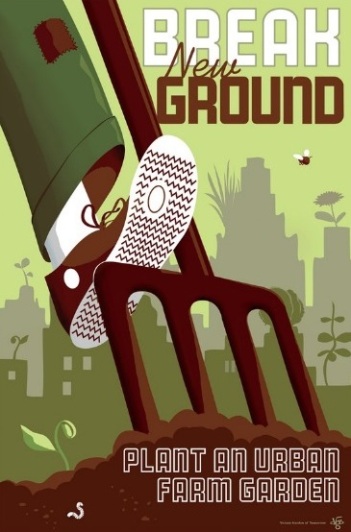
![Old design [Left] in comparison to proposed redesign [Right]](https://mellopress.files.wordpress.com/2014/03/nutrition-updates2.png?w=640&h=454)
